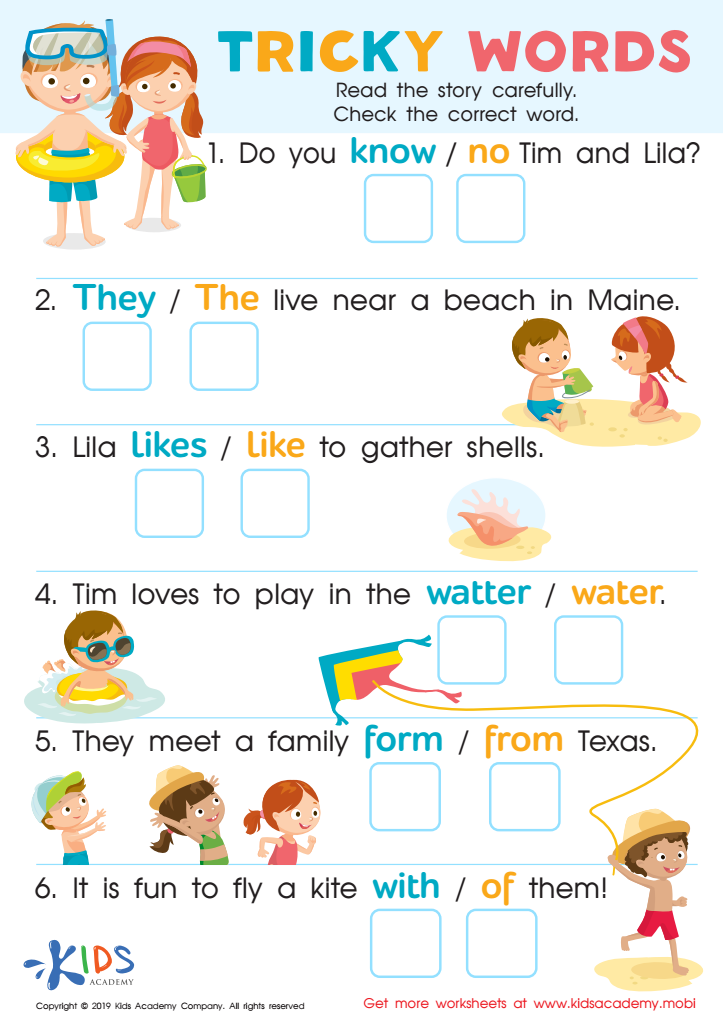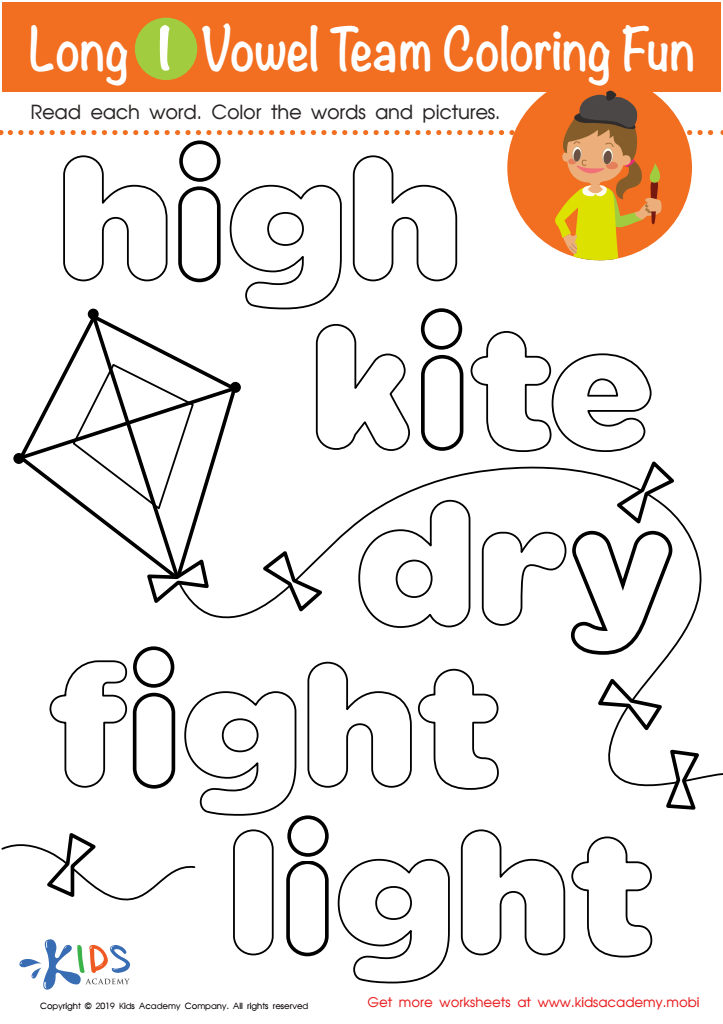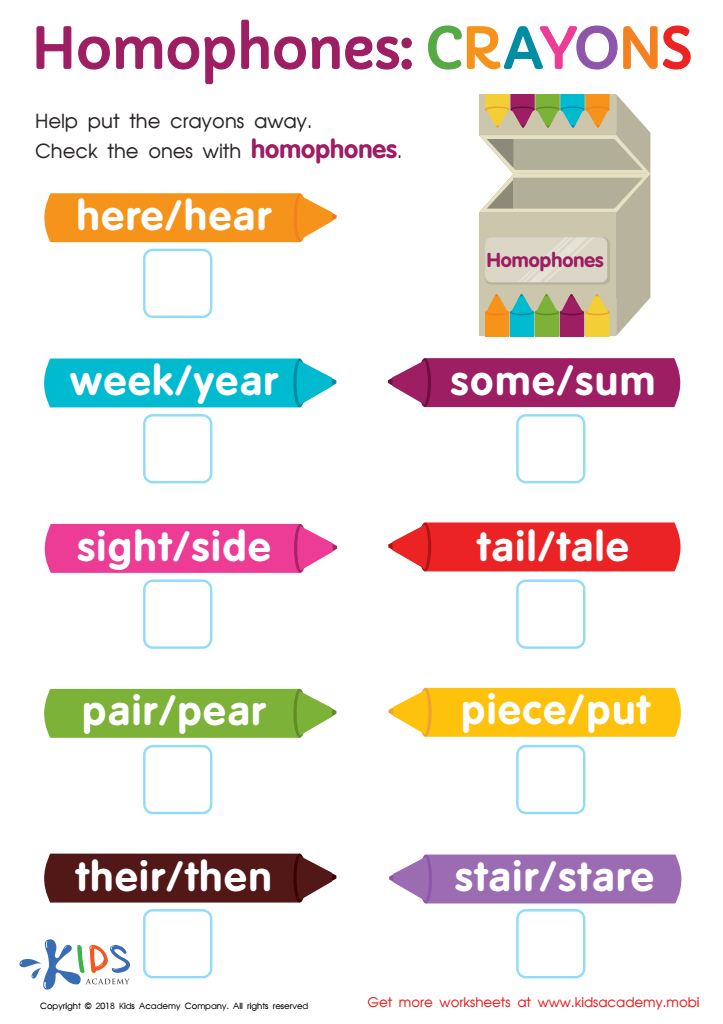Spelling practice Normal Elementary Phonics Worksheets for Ages 6-9
3 filtered results
-
From - To
Boost your child's spelling skills with our Normal Elementary Phonics Worksheets for ages 6-9 from Kids Academy. These engaging worksheets are designed to make spelling practice fun and effective, using phonics-based activities that help young learners recognize letter patterns, sounds, and word structures. Perfect for building a strong foundation in reading and writing, our worksheets cover a variety of essential skills such as vowel sounds, consonant blends, and word families. Each carefully crafted activity aims to enhance your child's understanding and confidence, ensuring they are prepared for future academic success. Visit us today and start spelling the fun way!


Tricky Words Worksheet


Long I Vowel Team Coloring Worksheet


Homophones: Crayons Worksheet
Spelling practice and phonics are critical components in the educational development of children aged 6-9. During these formative years, students transition from "learning to read" to "reading to learn." Proficiency in spelling and phonics directly influences a child's reading and writing skills, which are foundational for all other subjects, including math, science, and social studies.
Firstly, phonics instruction helps children understand the relationship between letters and sounds, which is essential for decoding new words. This enhances reading fluency and comprehension, allowing children to absorb and retain information more effectively. Spelling practice, on the other hand, reinforces phonics concepts and helps students commit words to their long-term memory, promoting accurate and expressive writing.
Additionally, mastering spelling boosts a child’s confidence and fosters a positive attitude towards learning. It reduces frustration and aids in effective communication, both verbally and in writing. Teachers and parents play a crucial role in providing consistent and supportive spelling practice, which not only enhances academic performance but also prepares children for future challenges.
Investing in these skills early on lays a strong foundation for literacy, setting children up for ongoing academic success and opening doors to a richer and more fulfilling educational journey. Therefore, prioritizing spelling practice and phonics for young learners is indispensable for their overall cognitive and emotional development.
 Assign to My Students
Assign to My Students









